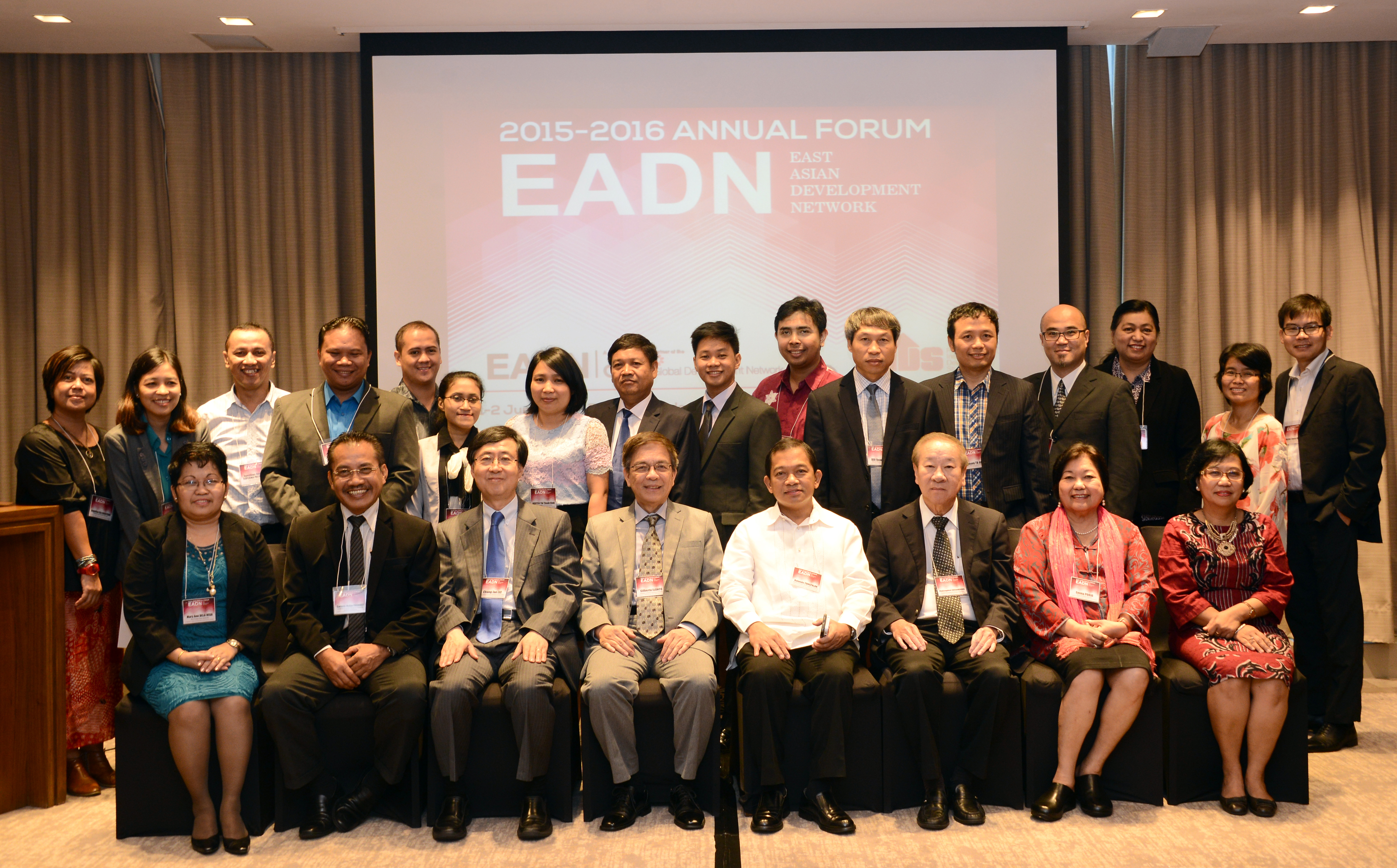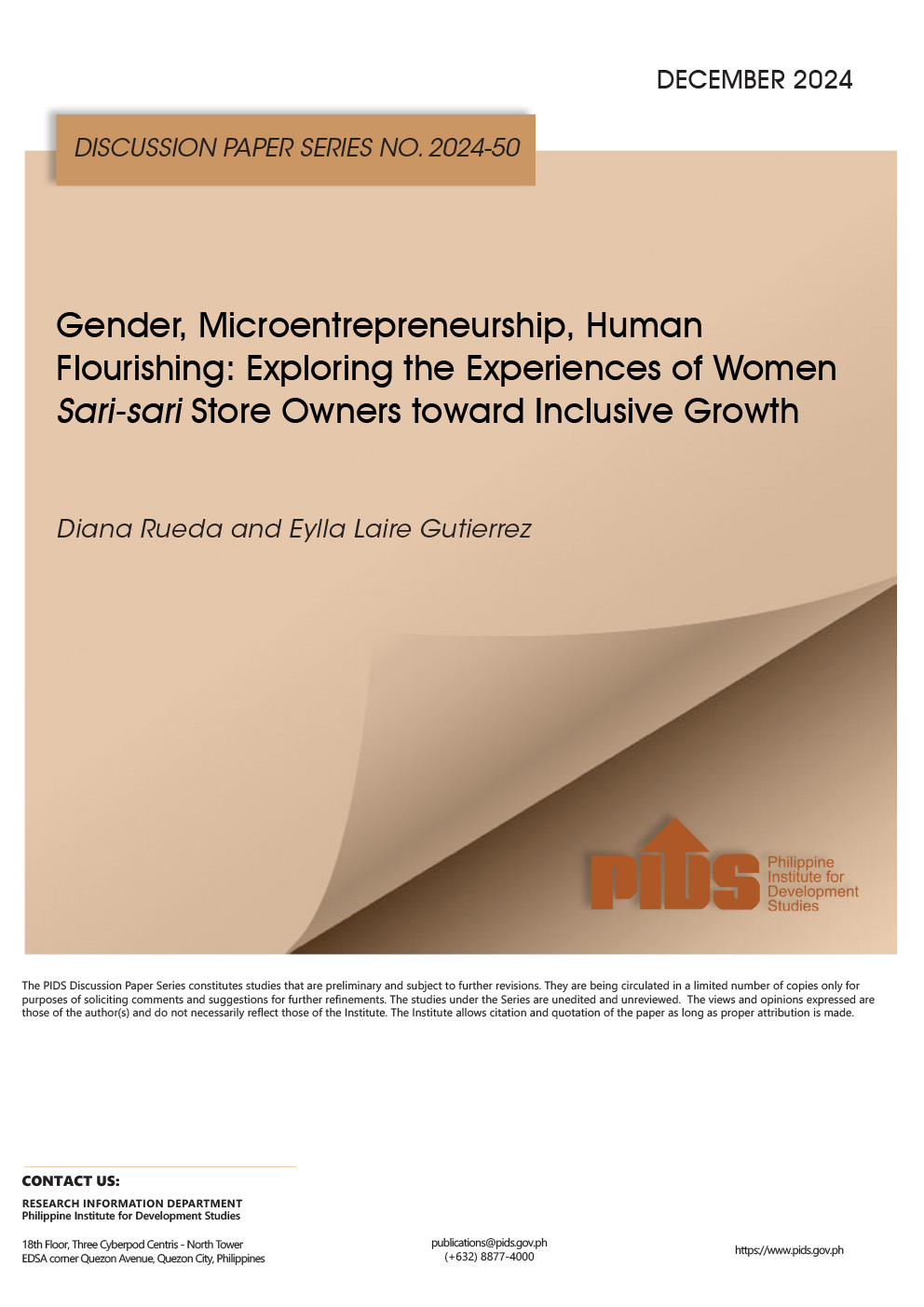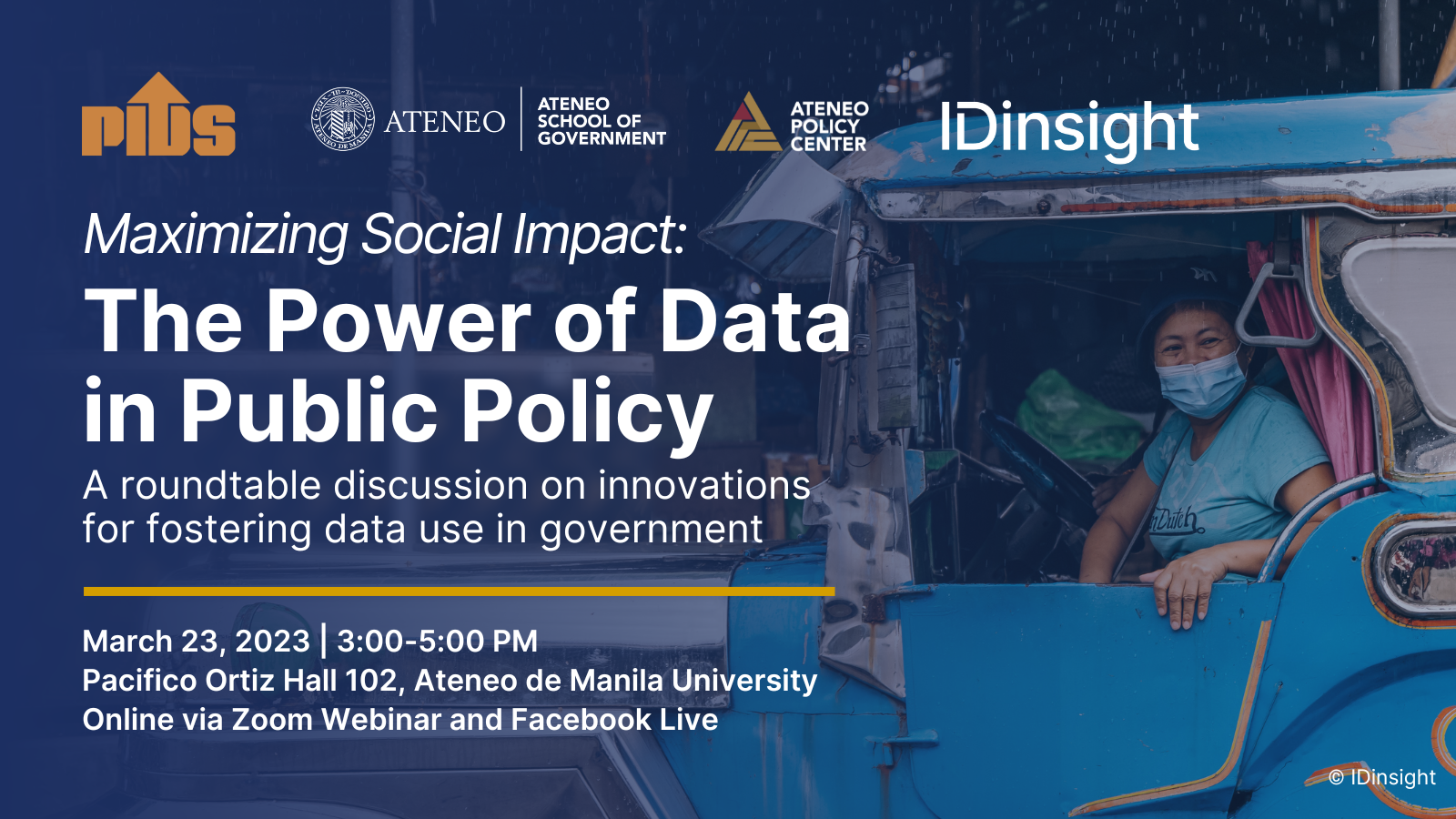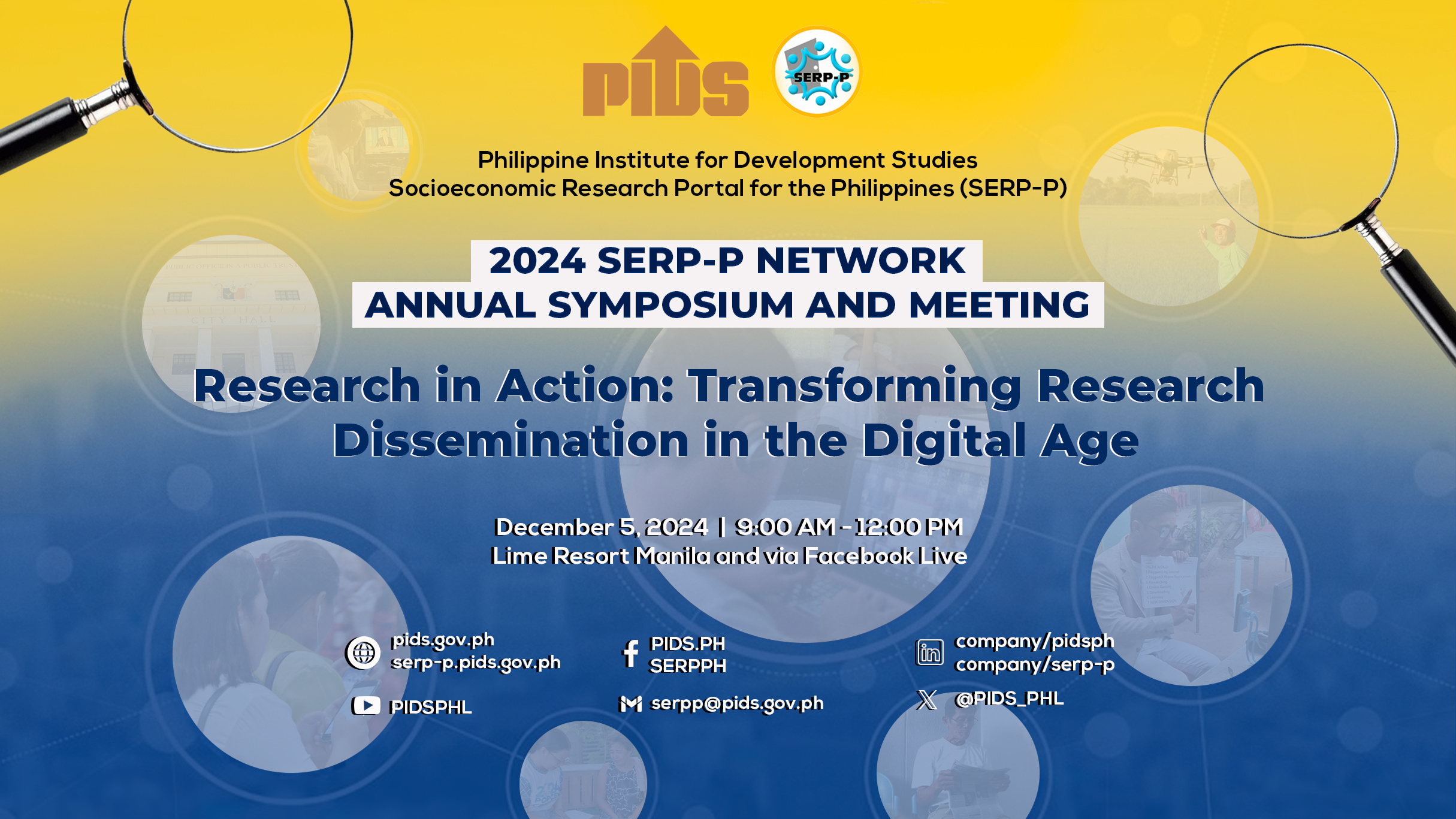
The East Asian Development Network (EADN) met early this month for the annual research conference to review the progress of the studies being conducted by the network's current research grantees.
The network was commended by keynote speaker Rolando Tungpalan, deputy director-general for Investment Programming at the National Economic and Development Authority, for "its continuing efforts to promote research capacity building and policy networking in the region".
The critical role played by evidence-based research in governance and public leadership, especially in the process of making public policies, is too often understated.
Tungpalan cited the Philippine Institute for Development Studies (PIDS)--whose President, Dr. Gilberto Llanto, sits as chairman and regional coordinator of the EADN Steering Committee--for its efforts in promoting the role of evidence-based research in public policy.
"PIDS contributed to the background studies that refined the country’s initiatives and priorities," recognized Tungpalan.
PIDS also investigated the design and impact of programs and policies of the outgoing government on areas such as reforestation, rural electrification, housing resettlement, educational grants, and social welfare.
Such commitment is essential, remarked Tungpalan, especially at a time when the country faces changes both in leadership and in the economic landscape of the Southeast Asian region.
"On one hand, we need high-quality development-focused research to formulate evidence-informed policy decisions, and guide their implementation at both the national and regional levels. On the other hand, we need to facilitate the dissemination of research evidences, and the discussion of current and emerging issues, especially in the light of regional integration," Tungpalan noted.
The EADN is designed to bring together experienced researchers and young scholars around the region to undertake policy-oriented research into important development issues.
With the progress of the Association of Southeast Asian Nations (ASEAN) Economic Community, Tungpalan said it was "the perfect time" not only to examine relevant development issues but also to invest in and build the research capabilities of ASEAN's research communities.
"This is exactly what EADN does. It provides an excellent platform to strengthen the research capacity to conduct quality research for policy," explained Tungpalan.
He reminded EADN’s researchers that "it is not sufficient to have strong opinions against somebody else's opinion. Having good evidence arises from research, provides the highest form of accountability--to the extent that while policymaking is a political process, politicians and policymakers will have to bear against what good evidence may be presented to define a set of policy options."
The current crop of EADN researchers focused on issues that have the potential to inform policymaking towards a more resilient region. These issue range from studying the impact of urbanization on mountainous communities, the phenomenon of poverty feminization, the role of community media in climate change resilience, the potential of phytoremediation in rehabilitating landfills, the impact of transport networks on urban space, the case for peace education in conflict areas, and the role of non-formal education in natural resource management.
Established in 1998, the list of current senior researchers who attended and helped facilitate this year’s EADN conference include Dr. Phalla Chem (Cambodia), Dr. Medelna Hendytio (Indonesia), Dr. Mary Racelis (Philippines), Dr. Chang Jae Lee (Republic of Korea), Dr. Emma Porio (Philippines), Dr. Sonny Domingo (Philippines), Dr. Adoracion Navarro (Philippines), Dr. Helen Ting (Malaysia), Dr. Exaltacion Lamberte (Philippines), Dr. Suguru Mizunoya (Japan), Dr. Chalongphob Sussangkarn (Thailand), Dr. Carunia Firdausy (Indonesia), and Chhaeng Vannarith (Cambodia). ###
If you wish to learn more about the studies presented during the EADN, you may read about them in the latest issue of the PIDS Development Research News.
The network was commended by keynote speaker Rolando Tungpalan, deputy director-general for Investment Programming at the National Economic and Development Authority, for "its continuing efforts to promote research capacity building and policy networking in the region".
The critical role played by evidence-based research in governance and public leadership, especially in the process of making public policies, is too often understated.
Tungpalan cited the Philippine Institute for Development Studies (PIDS)--whose President, Dr. Gilberto Llanto, sits as chairman and regional coordinator of the EADN Steering Committee--for its efforts in promoting the role of evidence-based research in public policy.
"PIDS contributed to the background studies that refined the country’s initiatives and priorities," recognized Tungpalan.
PIDS also investigated the design and impact of programs and policies of the outgoing government on areas such as reforestation, rural electrification, housing resettlement, educational grants, and social welfare.
Such commitment is essential, remarked Tungpalan, especially at a time when the country faces changes both in leadership and in the economic landscape of the Southeast Asian region.
"On one hand, we need high-quality development-focused research to formulate evidence-informed policy decisions, and guide their implementation at both the national and regional levels. On the other hand, we need to facilitate the dissemination of research evidences, and the discussion of current and emerging issues, especially in the light of regional integration," Tungpalan noted.
The EADN is designed to bring together experienced researchers and young scholars around the region to undertake policy-oriented research into important development issues.
With the progress of the Association of Southeast Asian Nations (ASEAN) Economic Community, Tungpalan said it was "the perfect time" not only to examine relevant development issues but also to invest in and build the research capabilities of ASEAN's research communities.
"This is exactly what EADN does. It provides an excellent platform to strengthen the research capacity to conduct quality research for policy," explained Tungpalan.
He reminded EADN’s researchers that "it is not sufficient to have strong opinions against somebody else's opinion. Having good evidence arises from research, provides the highest form of accountability--to the extent that while policymaking is a political process, politicians and policymakers will have to bear against what good evidence may be presented to define a set of policy options."
The current crop of EADN researchers focused on issues that have the potential to inform policymaking towards a more resilient region. These issue range from studying the impact of urbanization on mountainous communities, the phenomenon of poverty feminization, the role of community media in climate change resilience, the potential of phytoremediation in rehabilitating landfills, the impact of transport networks on urban space, the case for peace education in conflict areas, and the role of non-formal education in natural resource management.
Established in 1998, the list of current senior researchers who attended and helped facilitate this year’s EADN conference include Dr. Phalla Chem (Cambodia), Dr. Medelna Hendytio (Indonesia), Dr. Mary Racelis (Philippines), Dr. Chang Jae Lee (Republic of Korea), Dr. Emma Porio (Philippines), Dr. Sonny Domingo (Philippines), Dr. Adoracion Navarro (Philippines), Dr. Helen Ting (Malaysia), Dr. Exaltacion Lamberte (Philippines), Dr. Suguru Mizunoya (Japan), Dr. Chalongphob Sussangkarn (Thailand), Dr. Carunia Firdausy (Indonesia), and Chhaeng Vannarith (Cambodia). ###
If you wish to learn more about the studies presented during the EADN, you may read about them in the latest issue of the PIDS Development Research News.












